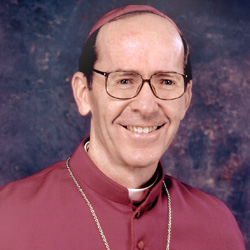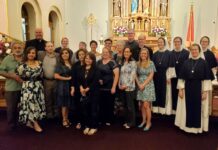“It is not enough to say ‘I am free’,” Blessed John Paul II was accustomed to say, “One needs also to say ‘I am responsible.’” Human freedom is both a gift and a responsibility. It cannot be achieved without the hard work of overcoming selfishness, developing self-discipline, learning obedience, building virtues, and making constant efforts to grow in love of God and of others. In part one of this series, we looked at the nature of human freedom and the need for God’s grace to overcome slavery to sin and to arrive at mature freedom. Now, let us consider the educational steps that are needed to make that journey with God’s help. As we do so, we do well to keep in mind that God created us for eternal happiness, and that he bestowed on us natural desires that assist our growth in freedom.
The stage of discipline
Fr. Servais Pinckaers, OP, a well-known moral theologian and Thomistic scholar, delineates three stages of education in freedom: the stage of discipline, the stage of progress, and the stage of maturity (Cf. “The Sources of Christian Ethics,” pp 359-371). His insights can be a great help in understanding how to grow and advance in human freedom. Today, I shall consider the first of these stages.
Learning freedom is like learning to perform beautiful music or preparing to compete in the Olympics. It requires that we learn the value of basic rules and of good teachers. We need to learn what to do and what to avoid. With these and the help of God’s grace, we can then inculcate personal discipline that allows us consistently to put the rules into practice.
To appreciate the value of teachers in this endeavor, it is helpful to recall the origins of the word discipline. It is derived from the word disciple. One learns discipline by following the good example and the insights of a worthy teacher. We see this in the lives of the Apostles who had the great privilege of being among the first disciples of the Lord Jesus.
Removing bad habits
We shall never be free until we remove bad habits that are contrary to charity and goodness. This requires that we look within our hearts for selfish patterns of behavior and for any moral inertia and laziness that get in the way of following God’s law that leads us to freedom. Before we can replace wrong attitudes with good ones, we have to discover and uproot what is wrong. A great help in this effort is the study of the Ten Commandments and other laws revealed by God in the Sacred Scriptures or handed down in the Church.
What limits freedom is sin, not God’s commandments; and what broadens freedom is obedience to the moral law. As the Catechism says (#1740), “By deviating from the moral law man violates his own freedom, becomes imprisoned within himself, disrupts neighborly fellowship, and rebels against divine truth.”
A wonderful thing happens when we begin to follow the law of God: we discover that it resonates with our innate moral sense. Our human nature, designed by a loving Creator, helps us along the path to freedom.
Nature is designed for freedom
According to St. Thomas Aquinas, nature is the source of human freedom. We are able to be free because of our natural inclinations, not in spite of them. This comes as a surprise to some, since our experiences with temptation and the failure of sin seem so closely linked with human nature. But the spiritual impulses within us that hinder freedom come from our “fallen” human nature, from the scars left behind by original sin. It was not like this in the beginning. God did not design human nature so that it would impede growth in freedom. On the contrary, He planted within us both a desire to be free and the natural spiritual inclinations and moral sense that enable us to be free (I am not talking here about inferior animal instincts but inspirations of a higher quality placed within human persons by God).
Each natural spiritual inclination is called by St. Thomas Aquinas an “instinct of the Holy Spirit.” God creates us, in other words, with a spiritual interiority that serves as a kind of point of departure for the development of freedom. We are, you might say, spiritually wired to cooperate with the Holy Spirit in order to overcome all that hinders freedom and then to receive with gratitude the many gifts of God that enable us to grow in obedience and virtue.
This is why Pope Benedict tells us that it is only in relation to God that a human person can come to know what human freedom truly is and subsequently to advance in living this freedom.
The best examples of human freedom, not surprisingly, are provided by Jesus and Mary. The Virgin who was conceived without sin was able to say with complete freedom to God, at the moment of the Annunciation (Lk 1:38), “Behold, I am the handmaid of the Lord. May it be done to me according to your word.” With similar trust in His heavenly Father, the Lord Jesus prayed in the Garden of Gethsemane (Lk 22:42), “‘Father, if you are willing, take this cup away from me; still, not my will but yours be done.” This is freedom at its fullest; it is obedience built on complete trust; it is the free decision of love that redeemed the world.
How different is the freedom of Jesus and Mary from the popular concept of freedom described as the human will to self-determination, wherein one insists on a radical difference between oneself and all others. The freedom we see in Mary and Jesus encompasses all three stages of growth in human freedom and far more. It helps us, as we seek to accomplish the first stage, to see the great value of surrender in trust to the will of God.
In the next issue of The Catholic Sun, we shall continue this consideration of human freedom, moving on to consider the second stage of education in freedom: the Stage of Progress in virtue.





![[VIDEO] Make Sunday feel like Sunday again](https://www.catholicsun.org/wp-content/uploads/2021/04/2021-YOUTUBE-BISHOP-MESSAGE-THUMBNAIL-ENGLISH-218x150.png)
